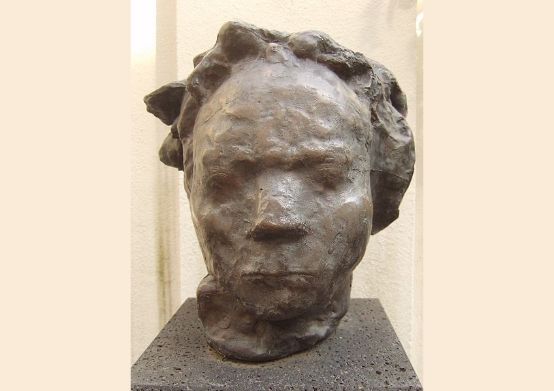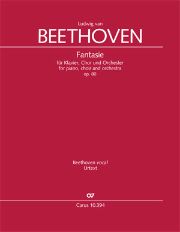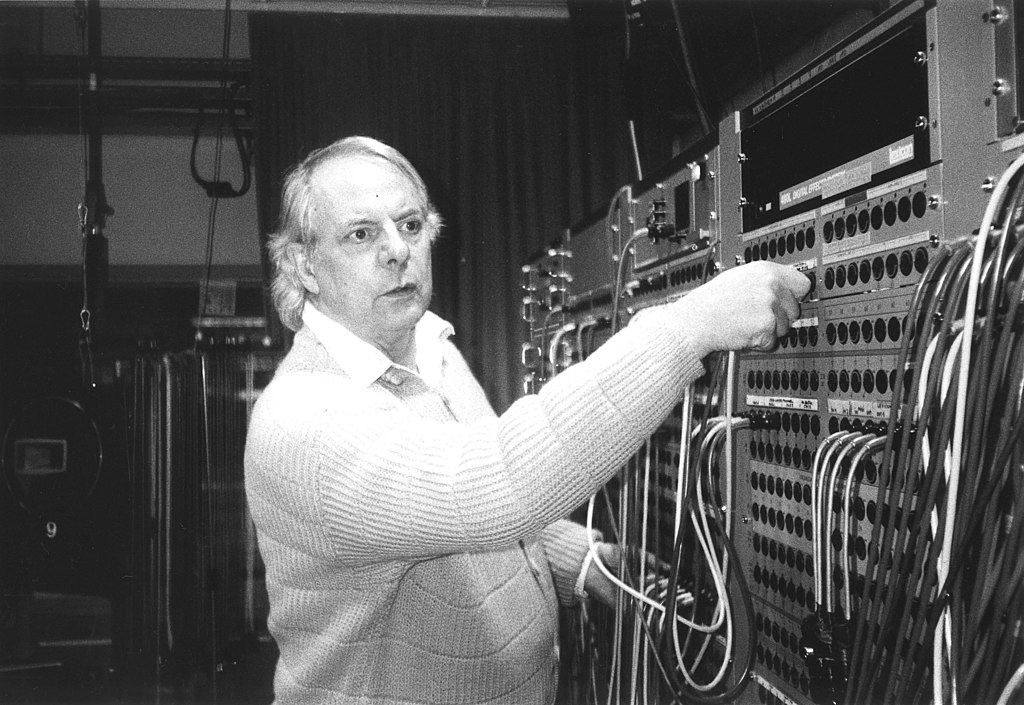The "Little Ninth"
Beethoven's Fantasia is suitable for choirs looking for something "hymnic". It is not particularly difficult.

Beethoven's Choral Fantasy op. 80 was composed sixteen years before his 9th Symphony. Due to the formal similarities and the similarity of the main melody to the Ode to joy the approximately twenty-minute choral fantasia is often referred to as the "Little Ninth". The work was originally composed for the "Great Academy" on December 22, 1808 in the unheated Theater an der Wien, a mammoth concert in which Beethoven also performed the 5th and 6th symphonies as well as the 4th piano concerto, the aria Ah perfido op. 65 and parts of the Mass op. 86.
The overwhelming length of the program (over four hours!), faulty notes and few rehearsals meant that Beethoven, who improvised the introduction to the Choral Fantasy himself at the piano despite his deafness, had to stop it and start again. He himself reported on this later: "The musicians were mainly upset that, because the simplest thing in the world had been missed out of carelessness, I suddenly had to keep quiet and shout out loud once again."
Carus-Verlag has recently published a new edition of the Choral Fantasy, which also contains an English vocal version. A recommendable work for choirs looking for something "hymn-like" in the concert setting. The choral part is not particularly difficult, and the solo parts can also be scored from the choir or semi-chorally under certain circumstances. In addition to the original version, which was very popular in the 19th century, there are also arrangements for two pianos by Hans von Bülow and a four-hand version by Hugo Ulrich for performances without orchestra.
Ludwig van Beethoven: Fantasy for piano, choir and orchestra op. 80, edited by Ulrich Leisinger; score, CV 10.394/00, € 39.95; piano reduction, CV 10.394/03, € 9.95; choir score CV 10.394/05; Carus, Stuttgart









